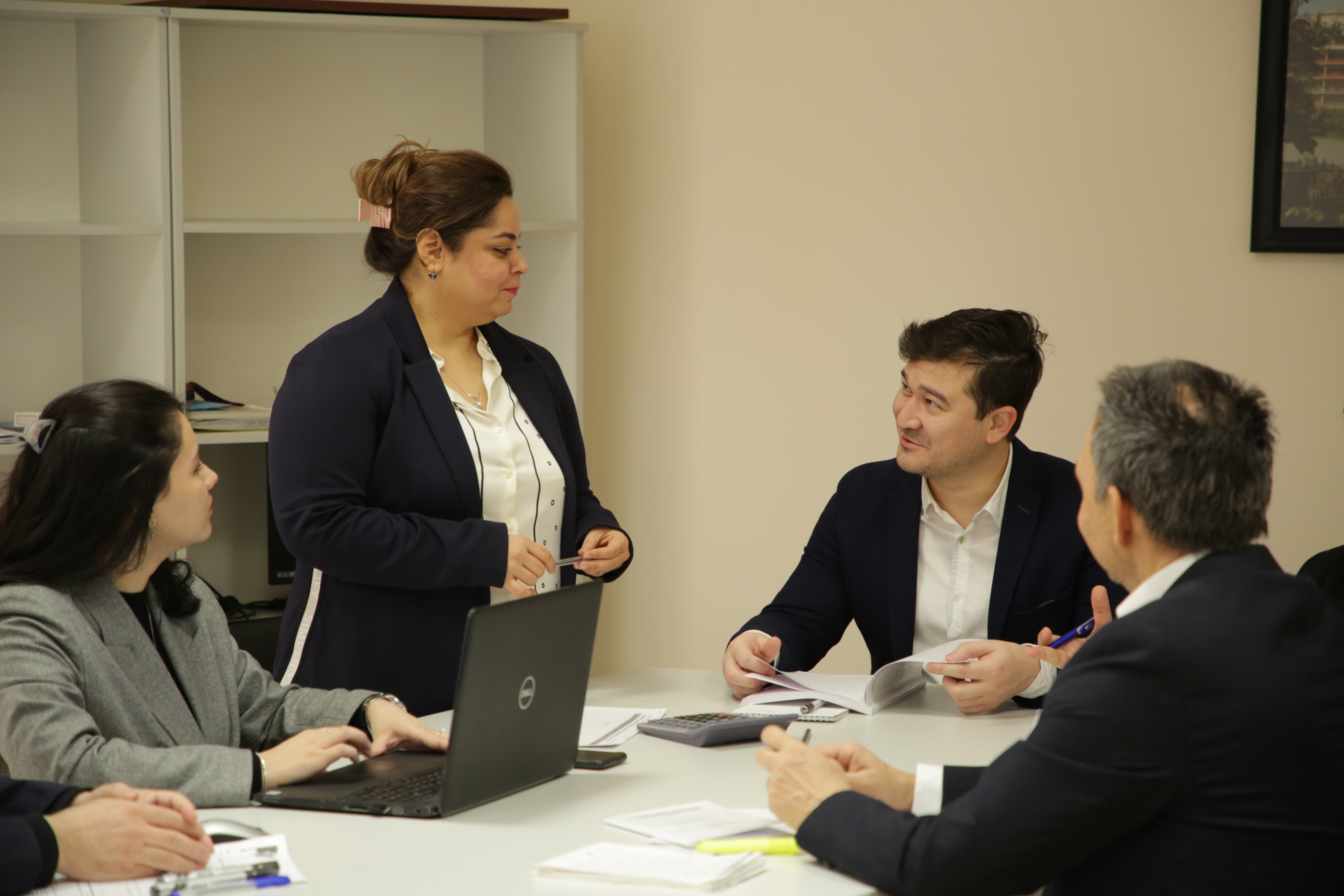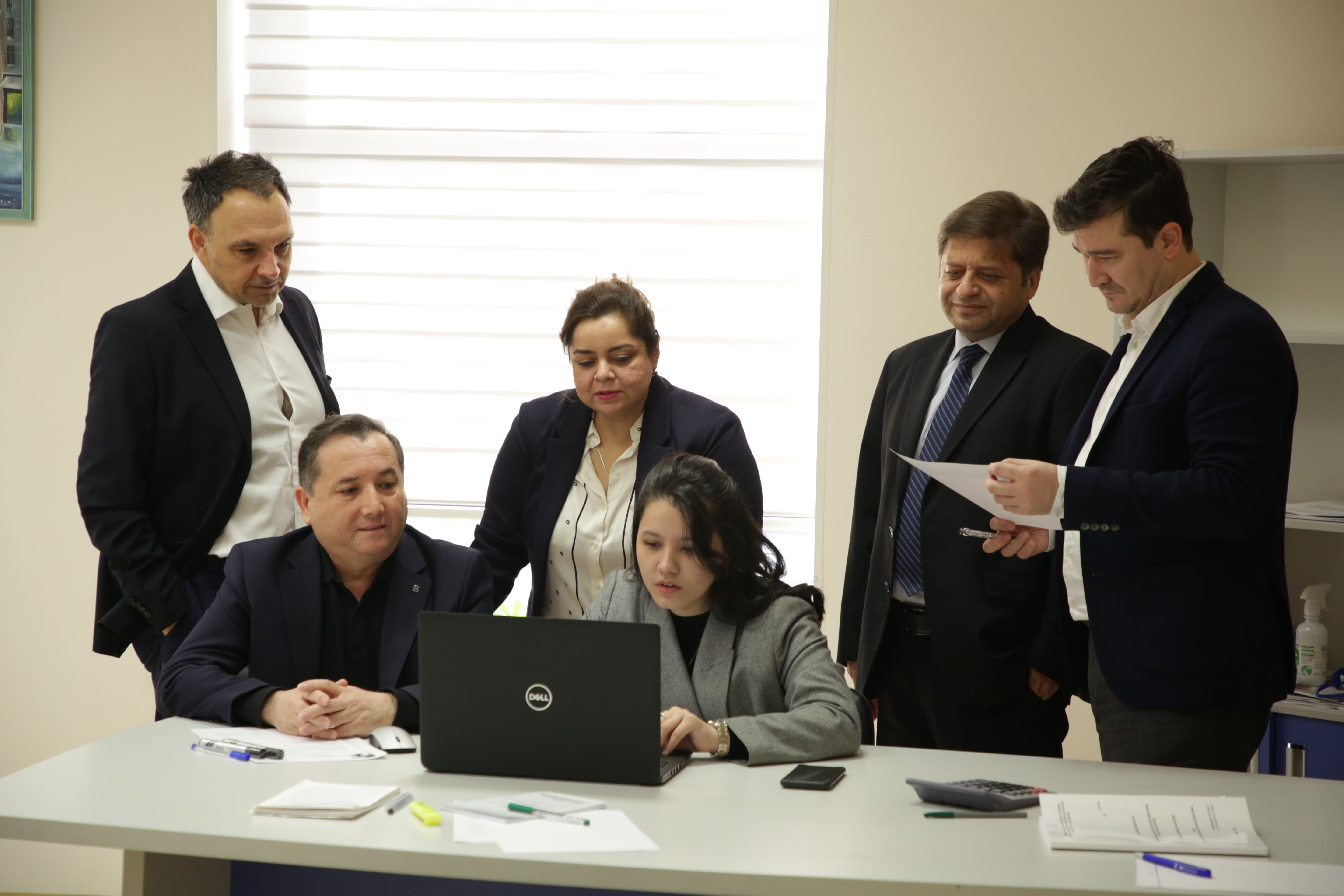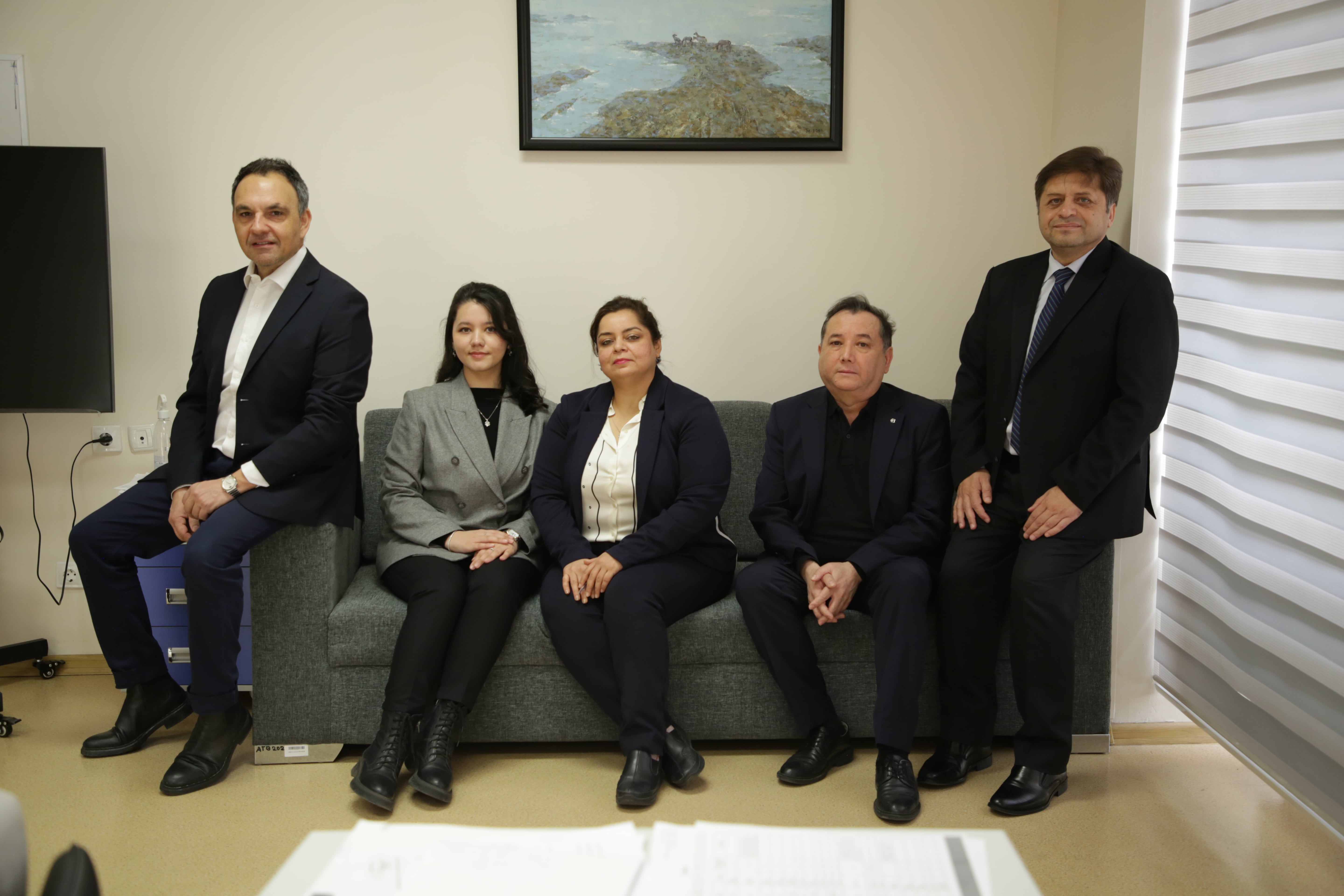BUSINESS CASE CENTER

WHAT SETS THE BCC APART?
Regional Relevance
Inspired by global leaders like Harvard Business Publishing and Ivey Publishing, the BCC focuses on creating high-quality, context-specific case studies that reflect the unique challenges and opportunities in Central Asia.
Industry Collaboration
The BCC partners with leading organizations in Uzbekistan and beyond, ensuring that the cases developed incorporate cutting-edge practices, real-world insights, and actionable solutions.
Innovative Learning Resources
The BCC offers a variety of teaching resources, including multimedia cases, video case studies, and interactive tools, making learning more engaging and impactful.
Holistic Approach
Through collaboration with faculty, industry professionals, and students, the BCC produces cases across disciplines such as marketing, finance, leadership, and sustainability, encouraging interdisciplinary learning.

OUR VALUES
Innovation: Encouraging creative approaches to case writing and teaching.
Collaboration: Building bridges between academia, students, and industry.
Excellence: Striving for the highest standards in case quality and relevance.
Impact: Ensuring our cases contribute to meaningful learning and real-world problem-solving.


OUR VISION
To become the leading repository of high-impact, Central Asia-focused case studies comparable to global leaders in the field.
OUR PURPOSE
The BCC was founded to serve as a platform for connecting students, faculty, and industry professionals to collaboratively address real-world challenges through the case method. Our goal is to provide learners with opportunities to apply theoretical knowledge to practical scenarios, fostering critical thinking, problem-solving, and decision-making skills.


OUR OBJECTIVES
• Encouraging and developing case writing among faculty, students, and industry professionals.
• Promoting the case method as an effective pedagogical tool in management education.
• Offering workshops, conferences, and symposiums to enhance case writing and teaching skills.
• Launching WIUT's Case Repository and Case Journal as resources for the wider academic and professional community.
• Building partnerships with other universities and organizations to foster collaborative research. Help them improve managers problem solving capabilities by offering them conceptual and grounding approaches for identifying local issues faced by them to offer solutions.
WHAT THE BUSINESS CASE CENTER (BCC) WILL DO
The Business Case Center (BCC) serves as a dynamic platform for the development, dissemination, and utilization of business case studies. Its primary activities are centered around fostering a culture of case-based learning, equipping faculty and students with essential skills, and creating meaningful connections with industry. Here’s a closer look at what the BCC will do:
The BCC is committed to creating high-quality, field-based teaching cases that address real-world business challenges and opportunities. This includes:
• Exploring Successes and Failures:
Studying why businesses succeed or fail by documenting real-world examples. Topics will include ethics, sustainability, crisis management, marketing, and financial decisions.
• Contextual Case Development:
Developing cases tailored to the Central Asian business landscape, providing unique insights into the region’s economic and cultural dynamics.
• Field Research:
Collaborating with industry to gather firsthand data through interviews, site visits, and organizational studies for authentic case material.
• Publication-Ready Cases:
Ensuring that cases meet international academic standards for use in teaching and publication.
The Business Case Center (BCC) offers structured training programs designed to enhance the development and effective use of business cases in both academic and professional settings. These programs provide participants with practical tools, methodologies, and strategies to bridge the gap between conceptual frameworks and real-world problem identification, while fostering a data-driven mindset in managerial decision-making.
Case Writing Workshops
Step-by-step guidance on creating compelling and impactful business cases, focusing on:
• Identifying the Right "Hook": Crafting engaging narratives that connect theoretical concepts with real-world challenges.
• Structuring Cases for Clarity and Impact: Designing cases that are well-organized, insightful, and aligned with teaching objectives.
• Writing Teaching Notes: Developing comprehensive guides to facilitate classroom discussions and link case scenarios to relevant conceptual frameworks.
• Techniques for Research: Conducting effective interviews and desk research to gather qualitative and quantitative data that reflect the nuances of managerial decision-making.
• Incorporating Data Analysis: Embedding data-driven approaches in case content to encourage evidence-based problem-solving.
Case Teaching Workshops
Focused training on integrating business cases into teaching to enhance student learning outcomes, with an emphasis on:
• Selecting Case Material: Identifying cases that align with learning objectives and resonate with diverse student audiences.
• Connecting Frameworks to Practice: Guiding participants on how to use cases to illustrate the application of theoretical models to practical decision-making scenarios.
• Fostering a Data-Driven Mindset: Teaching methods to use case studies as a platform for interpreting data, analyzing trends, and making informed managerial decisions.
• Managing Classroom Dynamics: Engaging students in active discussions, debates, and role-playing exercises to simulate real-world decision-making environments.
• Creating Interactive Teaching Environments: Leveraging multimedia tools, visual aids, and group activities to make learning more engaging and impactful.
These workshops are tailored to develop critical thinking, analytical skills, and practical problem-solving abilities among participants, ensuring they can effectively bridge theory and practice in diverse managerial contexts.
Submit a Case
• Contribute to the BCC Repository:
Submit your teaching case, video case, or caselet for review and inclusion in our repository. Contributions are welcome from faculty, students, and industry professionals.
• Submission Guidelines:
Submission Guidelines and Templates
COLLABORATIVE ECOSYSTEM
The BCC will create a collaborative ecosystem where faculty, students, and industry professionals come together to:
• Identify real-world business problems.
• Develop solutions through research and analysis.
• Contribute to an ever-growing repository of high-quality teaching cases.
This approach ensures that the BCC becomes a hub for experiential learning and a valuable resource for academia and industry alike.

FAQ
BCC is a developing academic case publisher that supports authors and institutions in creating, distributing, and teaching with high-quality business cases.
For more information or any other questions simply contact us at
CONTACT US
Business Case Center
+998 71 238 74 00
+998 71 238 74 44








